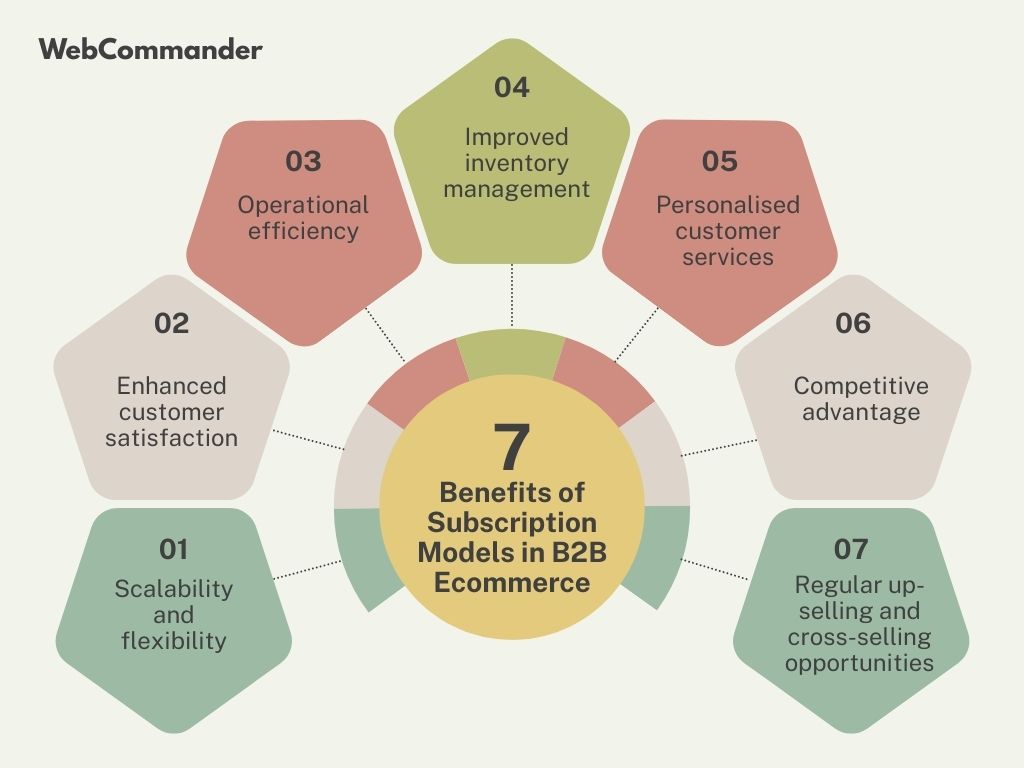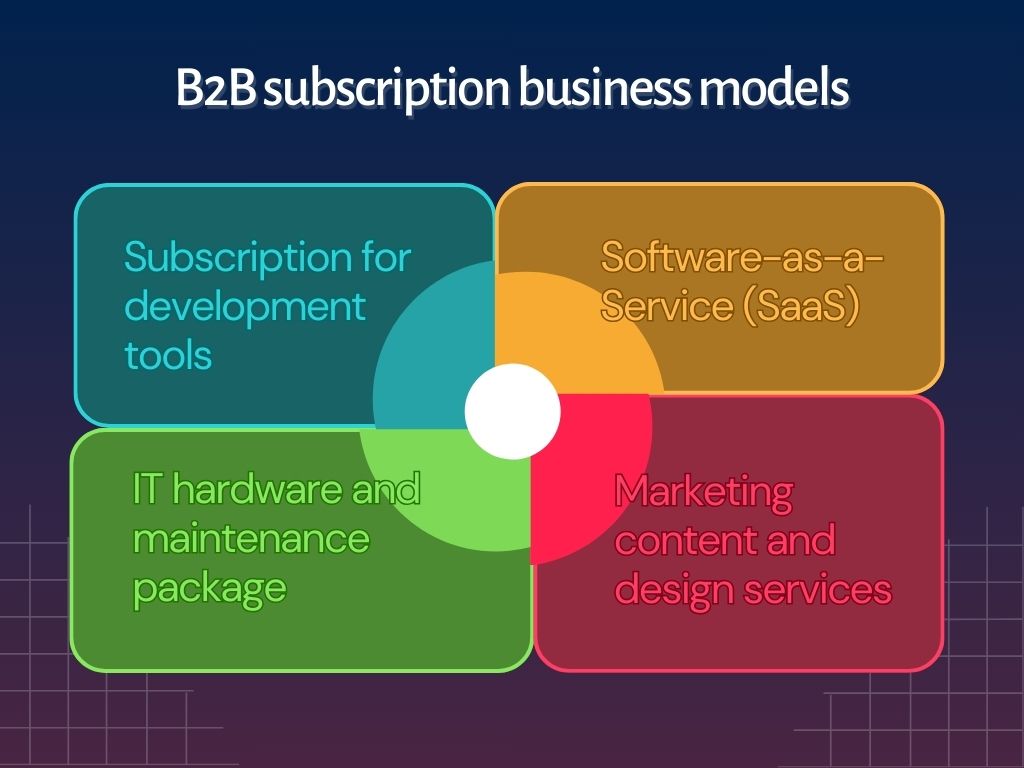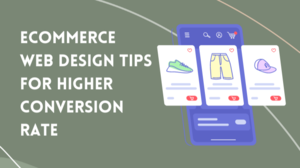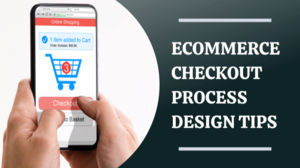7 Benefits of Subscription Models in B2B Ecommerce
In today's service-oriented economy, B2B buyers no longer depend on one-time transactions. They are continuously looking for ongoing value, flexibility and convenience, qualities that subscription models deliver.
This is where the role of subscription-based models comes in the b2b ecommerce space as a strategic way to build lasting customer relationships, ensure recurring revenue and streamline operations.
If we take a look at a few examples of B2B subscription business models, we can name, such as Microsoft 365, where businesses pay a monthly or annual fee to get access to cloud-based productivity tools. Another example is Amazon Business, where companies subscribe to recurring deliveries of necessary office supplies.
So, it is high time to embrace this trend as this can be a complete game-changer for your B2B business.
7 key benefits of flexible subscription models in B2B ecommerce

Flexible subscription models not just offer recurring revenue to businesses but also provide agility, improve customer retention, and streamline operations- all critical in today's competitive market.
Let's explore the advantages of B2B subscription models to see how they're reshaping the necessity of B2B ecommerce today.
1. Scalability and flexibility
By scalability and flexibility, we refer to the ability of a business to adjust its products and services depending on the changing needs of its clients. In B2B ecommerce, this is a must as clients' requirements change as their businesses grow, downsize, or pivot. In the subscription-based model, companies offer multiple service levels or product bundles, allowing the clients to switch as needed.
Buyers get the chance of control and adaptability, as with the subscription plans, they can start small and scale up gradually. This plays a key role in customer retention, long-term relationships, and smoother financial planning for both the buyer and seller.
2. Enhanced customer satisfaction
B2B subscriptions make it easier, reliable and valuable for clients. Customers don't have to place repeated orders manually or worry about running out of essential products or services because they get their orders at regular intervals- weekly, monthly, quarterly or even on-demand.
There are many platforms that allow buyers to use portals to track usage, change support or contact support. As this allows businesses to consistently meet the needs of the buyers with no hassle, this boosts the importance of the B2B ecommerce subscription model.
3. Operational efficiency
Operational efficiency shows how well a business can deliver its products or services with less waste of time, effort and resources. Subscription models in B2B significantly boost efficiency by automating routine tasks, minimising manual errors and streamlining the entire order and delivery process.
In the subscription system, recurring orders are processed automatically, eliminating the need for repeated purchase approvals, manual invoicing or any sort of back-and-forth communication. Over time, this will lead to faster workflows, fewer mistakes and smoother internal operations. Also, it reduces costs associated with delays, inventory mistakes, or duplicated efforts.
4. Improved inventory management
Subscription models benefit both suppliers and buyers by allowing them to manage inventory more accurately and efficiently by providing predictable order patterns. With recurring orders, businesses can find out how much stock they need depending on the subscribers' schedules. All this will minimise the risk of wasted products, last-minute orders or idle stock taking up warehouse space.
Suppose a B2B distributor that supplies packaging materials to ecommerce retailers allows clients to subscribe to delivery depending on fixed quantities. So, they can stock only what's needed for that month with no guesswork involved.
5. Personalised customer services
In B2B ecommerce, subscription models make it easier to gather ongoing insights via regular interactions. Usually, when a client subscribes, everything from their usage patterns to purchase history to preference can be tracked over time. Using this data, sellers can offer more relevant products and better support and even anticipate client needs.
When they offer customised suggestions, suggest helpful add-ons and adjust service levels, it will improve trust and boost retention, while strengthening long-term relationships and driving more meaningful customer experiences.
6. Competitive advantage
A well-structured subscription model can provide your company with a very powerful edge. It allows businesses to offer everything to the clients, from convenience to customisation to predictable pricing to consistent service.
In today's competitive market, customers want more than just a product, they look for everything from service to support to adaptability. And subscription models deliver all of that.
7. Regular up-selling and cross-selling opportunities
Upselling refers to when a business encourages a customer to purchase a higher-tier service or product, and cross-selling is all about suggesting related or complementary items.
When customers interact with your platform on a daily basis, you can track their behaviour to recommend products or add-ons. This will make your offer more relevant and timely and boost the likelihood of conversion.
B2B subscription business model ideas

Subscription for development tools: You can build a library of training videos, online courses and workshops and sell them for employee upskilling.
Software-as-a-Service (SaaS): You can offer business tools such as project management, accounting, CRM or cybersecurity software on a subscription basis.
IT hardware and maintenance package: You can offer hardware in a bundle with ongoing maintenance and support.
Marketing content and design services: You can deal with businesses on regular digital content creation, such as blogs, social media posts, email designs, etc.
Are there some drawbacks?
Despite the fact that B2B subscription models offer several advantages, they do come with some drawbacks as well.
Complex setup is one among them. While setting up a subscription model, it is a must to invest in the right tools, especially when you are planning to build an ecommerce website that can handle everything from recurring orders to customer data efficiently. Also, there is the risk of cancellation if the customers are not locked into long-term contracts.
Even if subscription models ensure predictable revenue, a little change in customer usage or cancellations can easily disrupt the demand forecasts. Businesses always have to keep an eye on constantly updating features, improving support and enhancing customer experience.
Wrapping up
However, once you recognise the challenges that come with it, you can easily make informed decisions and leverage subscriptions to create sustainable growth. Just make sure that you are following the right infrastructure and clear strategy. With benefits like scalability, consistency and operational efficiency, it's easy to see why more B2B companies are embracing this model.




![How to Start an Ecommerce Business in Australia [2023 Guide]](/template/e27cf56f/images/resource-blog-right-img1.png)





